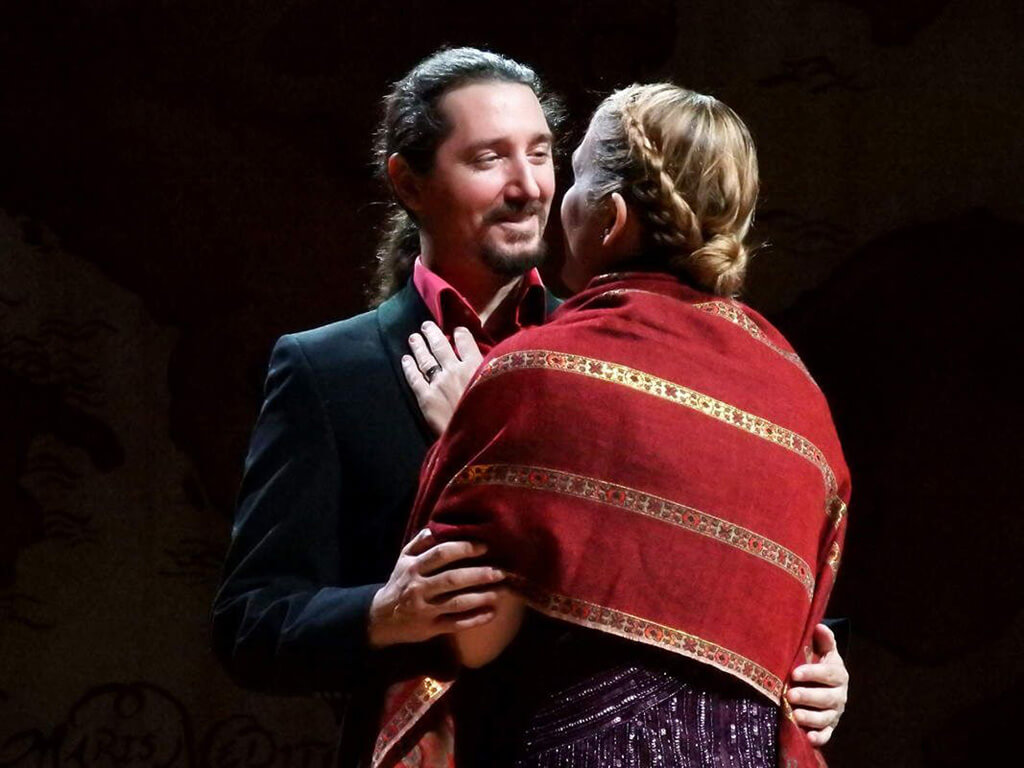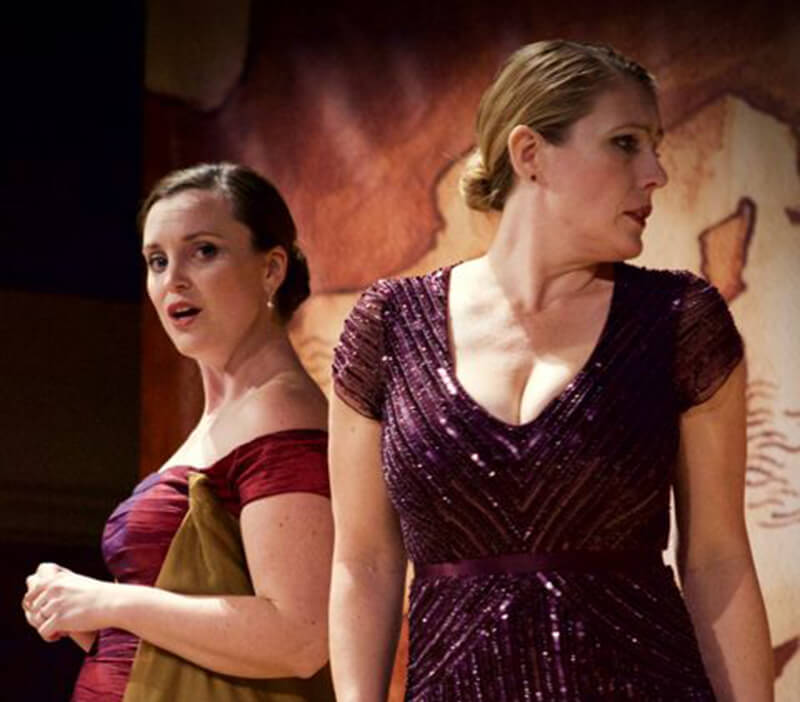
Toronto Masque Theatre’s (TMT) double bill of two operas, Dido and Aeneas and Aeneas and Dido, does exactly what modern art should: it explores antiquated works using modern ideas to provoke contemporary audiences.
Despite its beautiful music, Henry Purcell’s 337-year-old Dido and Aeneas doesn’t exactly resonate with our contemporary sensibilities. Knowing this, TMT tried to connect one of the world’s oldest operas to the present by commissioning a new Canadian work in 2006. Aeneas and Dido is TMT’s third commission composed by James Rolfe, with a new text by André Alexis. Unlike Dido and Aeneas, where the love between the title characters ignites in public spaces limiting the exploration of their inner thoughts and feelings, Aeneas and Dido fills in these gaps left in the original opera, offering privacy to the lovers to express their innermost desires. This difference between the two operas is what inspired the reversal of the original title. In Purcell’s opera, Dido is the only character that reveals her feelings for Aeneas, while he is left looking heartless because he leaves her at the request of the gods with what seems like no remorse. Instead, Rolfe’s opera reveals Aeneas’ innermost thoughts, allowing him to express his motivations for a modern audience.
Deconstructing Religion
We can see this by looking at how Alexis deconstructs what it means to be a hero or a god today in his updated libretto. In Dido and Aeneas, Mercury’s message, sung regally by Larissa Koniuk, warning Aeneas that he must leave Dido is taken seriously. However, in Aeneas in Dido the gods are portrayed as caricatures — a narcissistic Mercury and a divine goat that comically undermines him. Alexis updates this, belittling the gods with their own selfish motives and even setting their message in a dream to leave us wondering whether if the gods are real at all. Alexis’ text obviously inspired Rolfe to musically take this critique of religion one step further. During the dream sequence in which Aeneas speaks to the gods, Rolfe accompanies their prophecy with the organ to create an ecclesiastical texture. However, like Alexis’ reinterpretation of the gods, Rolfe distorts this “godly” music with dissonance to question whether we should trust messages from mythical deities instead of our own feelings.

Revealing the Inner Turmoil of Dido and Aeneas
Throughout the entire opera, Alexis and Rolfe play with our expectations of what we just saw happen in the original Dido and Aeneas. This comes to its apex in Aeneas and Dido with its replacement of Dido’s lament. Instead of famously crying “remember me,” Alexis inverts her request, having her ask us to forget her and her shame. It is not until the added monologue for Aeneas, which continues where Purcell left off, that we understand what Dido means. As he sails away looking at the cloud of smoke from Dido’s funeral pyre, Aeneas says that he is “nothing but what the gods make him.” Dido and Aeneas, our heroes, are deconstructed like the gods. By asking us to forget them, they ask us to excuse what they see as their inner weakness, not wanting to follow the orders of a higher power, but instead wanting to give in to their desires. Rolfe musically mirrors Alexis’ extrapolation of their inner turmoil left unexpressed for three hundred years. He does so by recalling the chromaticism that only appears at the end of Purcell’s opera when Dido finally expresses her inner thoughts.
As Dido, Krisztina Szabó Steals the Performance
With such a thoughtful and invigorating pairing as these two operas, it is hard to think how the same set of performers can bring to life such differing narratives and musical worlds. As Dido, Krisztina Szabó more than exceeded my expectations drawing her sizable voice back to craft each word and embellish them with tasteful ornamentation in the first opera. In the second, she unleashed all the colours of her full voice rising to the very top of her register with limitless beauty and control. Although he gave a commanding performance, Alexander Dobson’s Aeneas struggled to capture the baroque style in the first opera. Also, despite having the last word in the second, he was overshadowed again by Szabó. Other performers sang well with a very endearing performance by Jacqueline Woodley as Belinda. Unfortunately, the chorus of nine singers left me wanting more contrast in phrasing and volume. With so many repeated phrases in Purcell’s music and such rich dissonance in Rolfe’s, I wanted to hear more invention in their delivery especially since it was a small ensemble. The orchestra of period instruments played sensitively conducted by Larry Beckwith.
It is a shame that this will be the TMT’s farewell season. I can only hope that another talented leader like Beckwith will revive their vision and continue their legacy of probing the kaleidoscopic possibilities of the human condition by combining old and new works.
#LUDWIGVAN
Want more updates on Toronto-centric classical music news and reviews before anyone else finds out? Follow us on Facebook or Twitter for all the latest.



